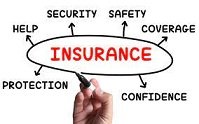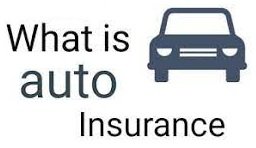
What Is Auto Insurance?
 It is a part of our everyday life but, until it comes time to pay the bill each month, we rarely give it a thought. Car Insurance, however, is an essential part of our everyday lives. It is a complicated and potentially dangerous world to drive in–without insurance, that potential for danger is greatly intensified. For instance, if you are in an accident in your car but do not have insurance, you are up the proverbial creek without the proverbial paddle.
It is a part of our everyday life but, until it comes time to pay the bill each month, we rarely give it a thought. Car Insurance, however, is an essential part of our everyday lives. It is a complicated and potentially dangerous world to drive in–without insurance, that potential for danger is greatly intensified. For instance, if you are in an accident in your car but do not have insurance, you are up the proverbial creek without the proverbial paddle.
But what is car insurance? Well, according to famous Insurance company (one of the leading providers of insurance in the world), car insurance is a way to “protect the people and things that are important to you.” Insurance company also breaks down what insurance does for you:
- Safeguard your investment in your automobile
- Pay for medical expenses in case of an accident
- Provide financial protection from lawsuits
- Cover losses caused by uninsured or underinsured drivers
- Pay for damage due to theft, vandalism or natural disasters
When looking into what coverage to buy, consider your specific needs and research the different kinds of coverage and their meanings:
Liability Coverage: protects you from damages to others if you are at fault.
Medical Payments Coverage: if bodily injury occurs, this can provide you with reasonable medical assistance.
Underinsured/Uninsured Motorists Coverage: protects you from damage caused by drivers who don’t have auto insurance or don’t carry enough auto insurance to pay for damages.
Personal Injury Protection: provides coverage for an insured person for certain reasonable and necessary expenses
Collision Coverage: helps pay to repair or replace your insured car. Comprehensive Coverage: helps pay for covered damages to your insured car resulting from a peril other than a collision: theft, flood, fire, or any other problem.
Once you decide on what coverage you need, you can purchase insurance; please, do not think you don’t need it–it is a foolish way of thinking. Even if you have never had an accident that does not mean that everyone else on the road shares your clean record. You need to protect yourself and others. Research the insurance and then get some!
Auto Insurance Glossary
Listed below are some important (and often obscure) terms utilized in the insurance world; for your benefit, you ought to become abreast of their meanings and therefore the context they will be utilized in. This way, you’ll have a transparent understanding of all aspects of shopping for insurance. These are the definitions to understand, consistent with the American Council of Insurance:
Bodily Injury Liability: When the policyholder causes injuries to a different, this policy will cover medical expenses.
Claim: When property is lost, damaged or not usable etc, a policyholder will request compensation.
Collision: This insurance covers damage to the policyholder’s car from any collision. A collision can occur with another vehicle like a car, a curb, light post etc.
Comprehensive: For damage to the policyholder’s car that does not involve hitting another car. This will include a spread of things: fire, flood, civil unrest, etc.
Deductible: The portion of losses that you simply comply with pay within the event of an accident. Higher deductibles lower premiums significantly, but will come to haunt you within the case of an accident, especially if you’re guilty.
Exclusions: If an accident occurs that’s not covered by your policy, it’s called an exclusion and isn’t a part of your coverage.
Full Coverage: This means that you simply have all the minimum coverage for your state of residence; it doesn’t necessarily mean you’ll always be fully covered.
Income Loss Coverage: This policy will cover the income you lost while injured.
Limits: The utmost amount of cash your insurance firm can pay for your losses.
Medical Payments or Personal Injury Protection (PIP): PIP covers the treatment of injuries to the driving force and passengers of the policyholder’s vehicle. On some occasions, it’s going to even cover medical payments and wages that were lost thanks to an accident. Consult your agent to ascertain how far your PIP policy will cover you.
No-Fault Insurance: For the policyholder to receive his/her money, this doesn’t require blame for any problem to assign.
Property Damage Liability: Pays for damage the policyholder causes to someone else’s property.
Tort: The term that describes when someone is deemed legally liable for injuring another person or damaging his/her property.

Leave a Reply